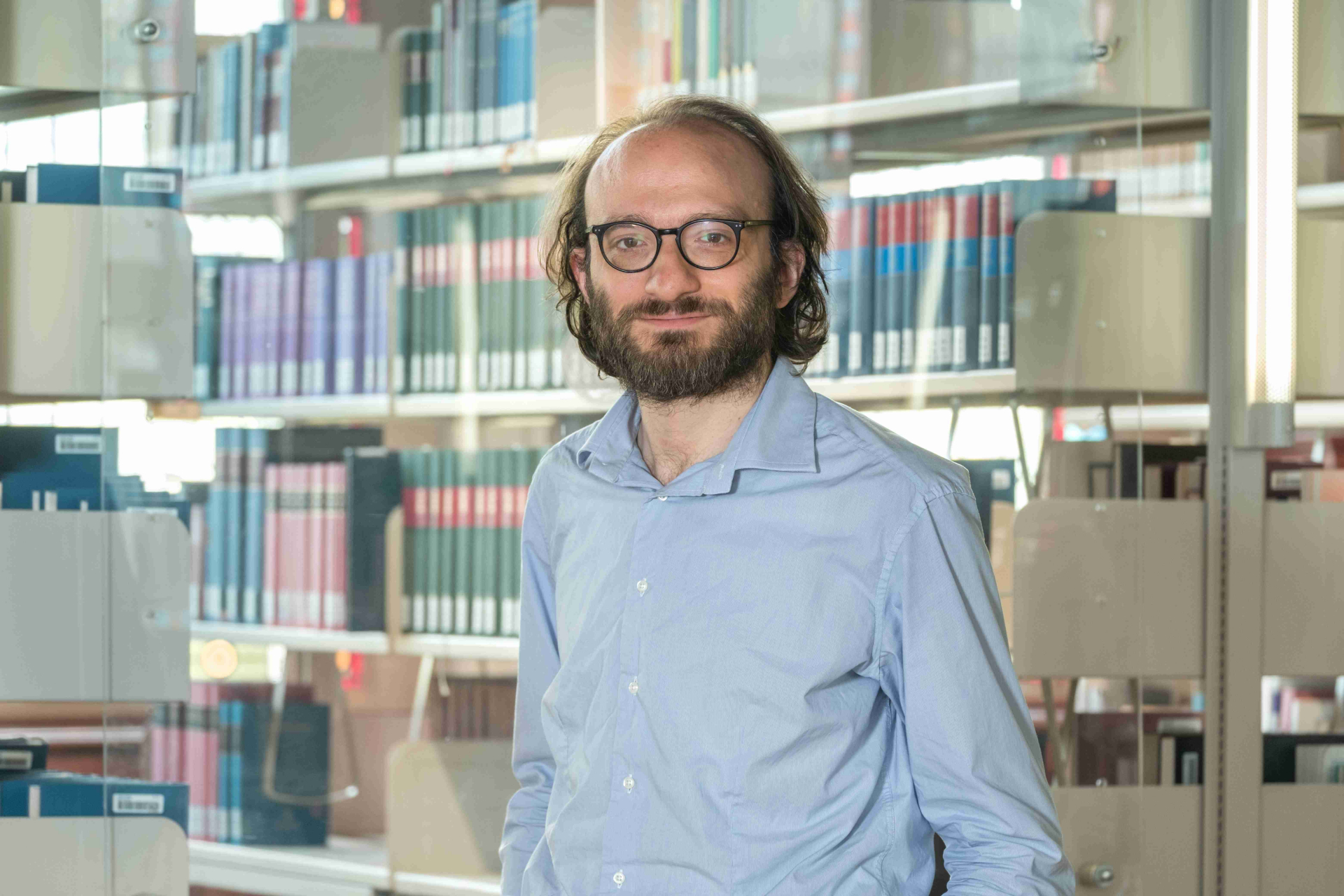Nannini, Dr. Alessandro

Seit 15.4.2024: Wiss. Mitarbeiter am IZEA
zuvor:
University of Bucharest, Romania
Gerda Henkel-Stipendium für Wissens- und Wissenschaftsgeschichte am IZEA
Aufenthalt: Juni u. Juli 2022 sowie März 2023
Stipendium für Aufklärungsforschung
Aufenthalt: 01.08.2019 - 30.09.2019
Zur Person
Geburtsjahr: 1985
Studium:
2012-2015: Ph.D. in Philosophy, University of Palermo
2004-2010: B.A and M.A. in Philosophy; M.A. in Cultural Anthropology, University of Bologna
April 2021 bis 12 2023: Wissenschaftlicher Mitarbeiter an der Universität Bukarest.
Weitere berufliche Stationen:
2022: Postdoctoral Fellow, Herzog August Library, Wolfenbüttel. Project: Beauty as a Regimen of the Mind. On the Dietetic Origins of Modern Aesthetics
10.2021: Visiting Researcher, Czech Academy of Sciences (Prague) and University of Vienna
15.8.-15.9.2021: Postdoctoral Fellow, Privy Prussian State Archive, Berlin. Project: Alexander Gottlieb Baumgarten als Akademiker in Frankfurt an der Oder.
10.2020-2.2021: Postdoctoral fellow, Centre for Advanced Study, Sofia. Project: Aesthetics as “medicina mentis”? A Reconsideration of the Origins of Aesthetics as a Philosophical Science
1.2019-4.2020: Research fellow in Philosophy, University of Bucharest
2019: Post-Doctoral Fellow, New Europe College, Bucharest
2018: Post-Doctoral Fellow, Gotha Research Center, University of Erfurt
2018: Post-Doctoral Fellow, University of Bucharest
2017: Post-Doctoral Fellow, Klassik Stiftung Weimar
2016-2017: Thyssen Post-Doctoral Fellow, University of Jena
2016: ACRI Research Award, University of Parma
Wichtige wissenschaftliche Funktionen und Mitgliedschaften:
- International Society for the History of Rhetoric;
- Società Italiana d'Estetica; - Società Italiana di Studi sul Secolo XVIII;
- International Society for Eighteenth-Century Studies;
- Research group "Philosophie allemande au 18ème siècle", Ecole Normale Supérieure de Lyon
Aktuellste Publikationen und Editionen:
Artikel (open access):
"Ars pulchre cogitandi." On an early definition of aethetics from Bouhours to Herder, in: Intellectual History Review (Routledge / Taylor & Francis Group), veröffentlicht am 20. August 2025, online unter: https://doi.org/10.1080/17496977.2025.2536337
Forschungsprojekt 2022/23
The Origins of Psychotherapy in the Age of Enlightenment
The aim of the present project is to examine the emergence of psychotherapy in the Enlightenment as a specific form of care of the soul, with special regard to the changes (and exchanges) in the relationship between philosophy and medicine that this emergence brought about.
What is the influence of this philosophical care of the mind on the origin of that particular form of medicina mentis that is psychotherapy? What are the continuities and what are the ruptures? How does the relationship between philosophy and psychology with the care of the soul change with the institutionalization of psychotherapy? In order to respond to these questions, the focus of my research will not be on the evolution of the conceptualization and the forms of treatment of psychic disorders, taken as the self-evident subject of the care of the soul, in the way the histories of psychiatry tend to do, but precisely on the historical transition leading the previously wider concept of care of the soul to be understood primarily as a treatment of psychic disorders in the hands of medical professionals.
In Halle, I will first of all frame the problem of the medicine for the mind in the medicine of the early Enlightenment, with special regard to the oft-neglected figure of Michael Alberti (1682-1757) and his “therapia moralis”. In the second section, I examine the concept of “psychological cures” by Johann Christian Bolten (1727-1757) in relationship both with psychology as a theoretical discipline in its Wolffian systematization and with the previous strategies of cure of the soul, as delivered by physicians and clergymen. In the third section, I explore the seminal role aesthetics plays in bridging the gap between the old philosophical and the new psychological way of treating the soul. In this way, I aim to cast new light upon the emergence of psychotherapy as a modern approach to the self-care for the self as well as on the passage of the care of the soul from the hands of the philosopher to the hands of the physician.
Forschungsprojekt 2019
Curing through Aesthetics. The Birth of Scientific Aesthetics at the Intersection between Medicina Mentis and the Rise of Psychotherapy
The aim of the present project is to investigate for the first time the birth of aesthetics as a philosophical science, founded by the German philosopher Alexander Gottlieb Baumgarten (1714-1762), in the light of the modern tradition of the medicine of the mind. Although the medicine of the mind has been recently viewed as a crucial key to understand the rise of the early modern thought, its link with the emendation of sensibility and imagination promoted by aesthetics has been hitherto ignored by commentators. My aim is therefore to recover this long-forgotten background, which will enable me both to reconsider the emergence of aesthetics as such and to investigate its role as a link between the earlier tradition of "medicina mentis" and the birth of modern psychotherapy. To this aim, the project is divided into three parts: firstly, I intend to clarify the debate about the medicine of the mind in the early German Enlightenment; secondly, I aim to investigate the relevance of aesthetics for the cure and training of sensibility and imagination as well as for the restoration of mental serenity; lastly, I analyze the reception of aesthetics in the physicians Johann August Unzer (1727-1799) and Johann Christian Bolten (1727-1757), among the founders of modern psychotherapy.

